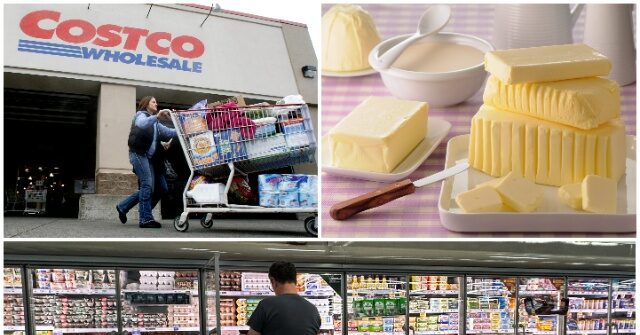On November 7, the U.S. Food and Drug Administration (FDA) announced a significant recall involving nearly 80,000 pounds of Kirkland Signature Sweet Cream Butter produced for Costco. The trigger for this Class II recall was the absence of a required “Contains Milk” allergy statement on the product’s packaging. Although the butter was labeled as containing “cream,” which is derived from milk, the lack of explicit allergen labeling raised concerns regarding potential allergic reactions among consumers. This situation highlights the intricacies of food labeling regulations and the importance of clear communication regarding allergens.
The recall specifically encompassed 79,200 pounds of both salted and unsalted varieties of the butter. According to Food & Wine, the FDA’s announcement noted that the products in question were produced by Continental Dairy Facilities Southwest, LLC, based in Texas. The confusion arose from how butter, as a dairy product, wasn’t labeled in a manner that informs consumers about the presence of milk, a common allergen. The recall affected a significant number of one-pound packages containing four 4-ounce sticks, further complicating the issue due to the quantity involved. The absence of proper allergen warnings in a widely consumed product like butter raised eyebrows, and discussions ensued about the effectiveness of current labeling practices.
The public response to the recall varied widely, with many expressing confusion and frustration over the reasons behind the FDA’s actions. Some commentators on social media described the recall as stemming from the “dumbest possible reason,” questioning the rationale of notifying consumers about an allergen that should be inherently understood—given that butter is primarily made from cream, which is itself derived from milk. One user pointed out that this incident reflects broader concerns regarding regulatory overreach and confusion in food safety governance, echoing sentiments often voiced in conversations about food industry practices post-Elon Musk’s acquisition of X (formerly Twitter).
Although no illnesses or adverse reactions have been reported following the consumption of the recalled butter, the FDA did not provide specific guidance on how consumers should proceed if they have purchased the products. Typically, in such situations, consumers are instructed to either discard the items or return them to the point of purchase—practices that some have found to be excessive, considering the safe status of the butter itself. According to local reports, the product remains safe for consumption, raising questions as to whether the recall might cause unnecessary alarm among consumers, particularly during the busy holiday season when butter is a staple for baking and cooking.
The recalled items included various lot numbers with “Best By” dates extending into 2025, including both unsalted and salted variations of the butter. As consumers began to hear about the recall, offers to accept the returned butter emerged from users who expressed their willingness to take the product, reflecting a certain level of disregard for the FDA’s alert among some segments of the public. Such reactions point to the complexities involved in consumer attitudes toward food recalls, particularly in regards to safety versus perceived unnecessary regulatory measures.
In conclusion, this recent butter recall from Costco serves as a critical reminder of the ongoing challenges faced in food labeling and consumer safety regulations. While the FDA aims to protect consumers, incidents such as this can underscore the ambiguity and confusion that can arise in the regulatory process. As more individuals engage with and discuss these recalls through social media, the importance of clear and informative labeling becomes increasingly evident. In the wake of any recall, ensuring that consumers have the appropriate information is fundamental, especially as holiday baking approaches, making transparency in food safety more crucial than ever.

